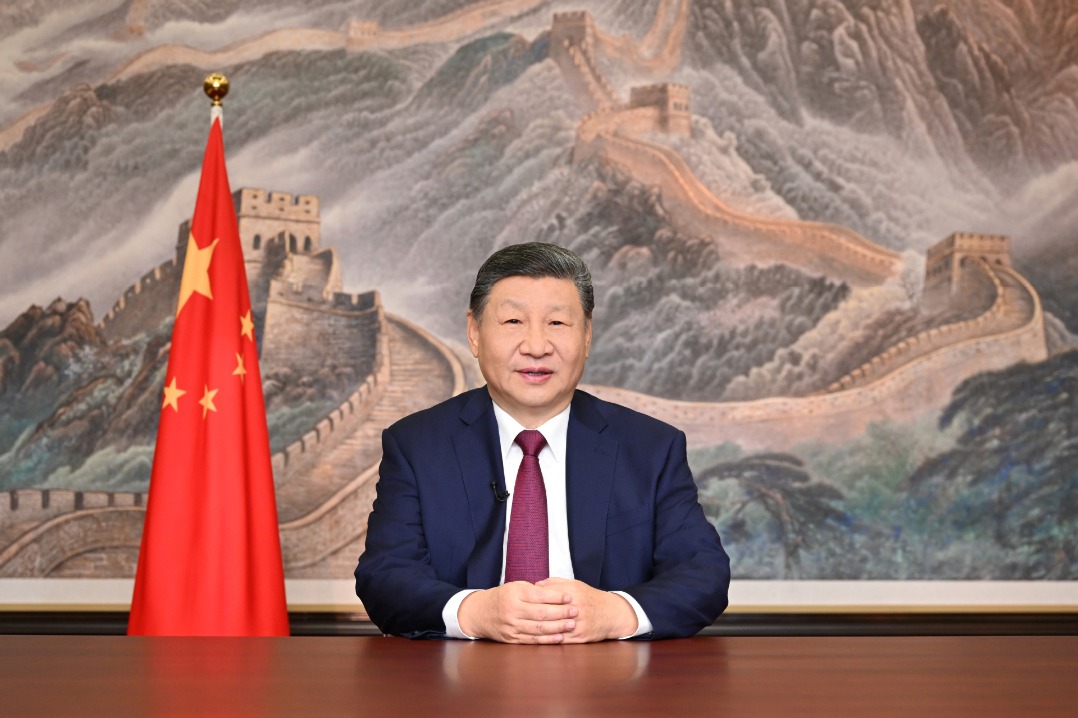Development imperative for eradication of extremism

Laws uphold security for economic, social progress
For a long period of time, terrorist activities have taken place within China, posing a serious threat to its national security, political stability, economic and social development, ethnic solidarity and people's safety. In response, the country has made continuous improvements to its legislation and set up an effective anti-terrorism legal system.
Terrorism is a public enemy, and to protect people, China has established a relatively comprehensive anti-terrorism legal system, which includes the Criminal Law, Criminal Procedure Law, National Security Law, Anti-Espionage Law, Anti-Terrorism Law, the Law on Management of Overseas Non-Governmental Organizations' Activities in China, Cybersecurity Law, and National Intelligence Law. And according to their actual anti-terrorism situations, China's local governments have also formulated corresponding anti-terrorism regulations and measures within the scope of China's Constitution and laws.
China's anti-terrorism legal system is aimed at striking a balance between countering terrorism and the protection of human rights. Terrorist criminals not only ignore their own human rights but also violate the human rights of others. The country's anti-terrorism laws protect human rights, including those of terrorists. In its counter-terrorism work, the country respects freedom of religious belief and ethnic customs and habits, and prohibits any discriminatory practices based on geographical, ethnic or religious differences.
At the same time, the anti-terrorism legal system not only has explicit clauses on combating terrorism in accordance with concrete laws, but also highlights terrorism prevention. For example, the State Security Law clearly emphasizes the maintenance of national security should give priority to terrorism-prevention measures, including risk prevention, assessment and early warning. The Anti-Terrorism Law also points out that anti-terrorism should adhere to the principle of combining preventive and punitive measures.
In dealing with terrorism, China adopts the principle of punishment and leniency throughout its anti-terrorism legislation, judicial and law enforcement process. For example, while dealing with a severe crackdown on major or extremist terrorists, those who are abetted, coerced or lured into taking part in terrorist activities, or who are slightly involved in terrorist activities, are given lesser punishments such as administrative penalties.
Fear, turmoil, poverty and death usually accompany terrorism. Under the specter of terrorism, countries find it difficult to enjoy stability and development, so anti-terrorism efforts help promote development through maintaining social stability. With the overall national security concept as its main principle, China's anti-terrorism legislation pursues people's safety as its purpose, emphasizing the country "attaches great importance to both development and security problems". Given that development is the foundation for security, and security is the condition for development, China's anti-terrorism legal system underscores not only stability and security, but also development and stability.
Practices prove that the country's anti-terrorism laws, which accord with its actual national conditions and meet people's expectations, have helped maintain its social harmony and stability and promote its economic prosperity and development, and their implementation has continuously enhanced people's sense of happiness, gains and security.
Xiao Wu, a professor with the Southwest University of Political Science and Law


































